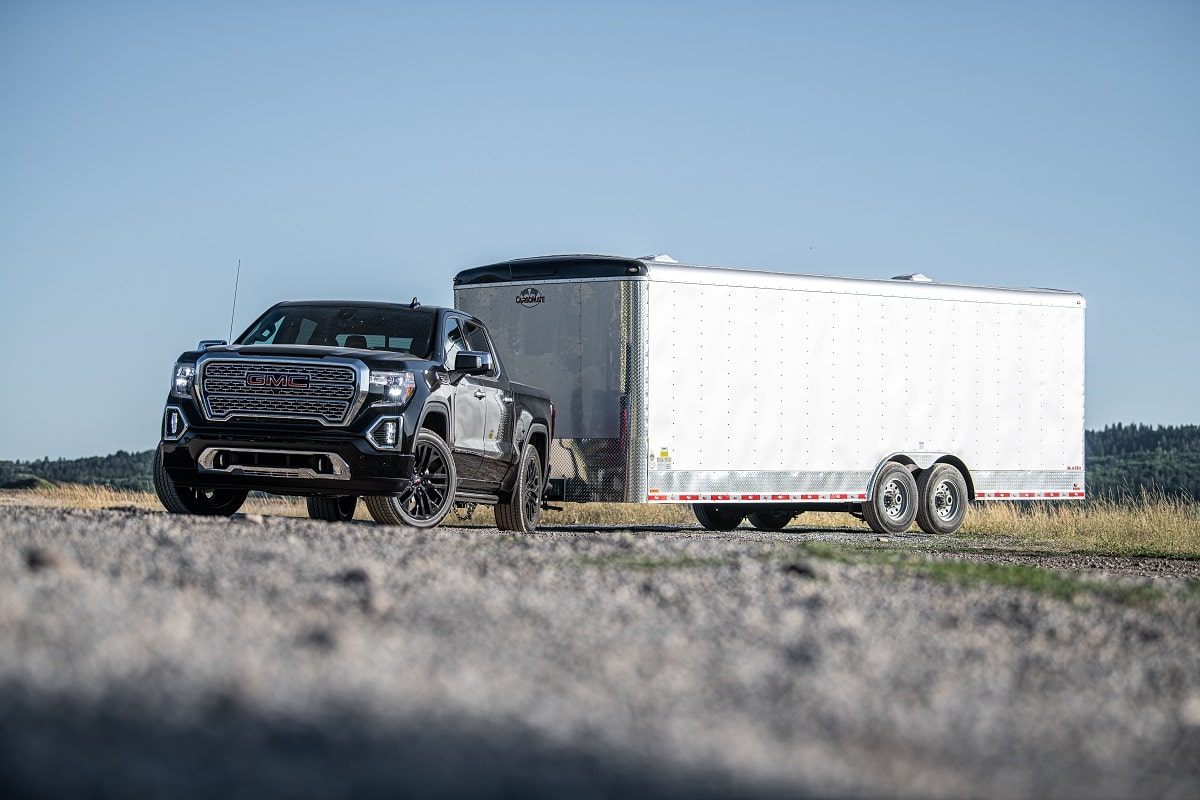
Today’s trucks and full-size SUVs are designed for serious towing. For example, the 2021 GMC Sierra 1500 pickup can pull up to 11,800 pounds, while its Yukon SUV sibling is good for up to 8,400 pounds. However, one thing vehicles aren’t designed for is towing more than their capacity. Here are three very important reasons why you should never tow more than your truck or SUV is rated to handle.
Your Ideal Truck: Find out which GMC Sierra 1500 trim is right for you
It’s dangerous for you and others
According to How Stuff Works, towing a load that’s too much for your vehicle to handle poses an immediate threat to everyone’s safety. If you need to stop or slow down, the extra weight and momentum could overwhelm your brakes or cause your hitch to fail. It also puts you at greater risk for trailer sway, which could flip your vehicle or cause a dangerous wreck.
Towing too much weight strains every part of your vehicle. The brakes need to work much harder, the tires are forced to handle more weight, and the suspension is placed under extra stress. Exceeding towing capacity could even bend or break your vehicle’s frame. Essentially, you’re shaving years of the life of your vehicle and its components.
Sierra HD Trim Levels: Get the details on GMC’s heavy-duty truck

Exceeding tow capacity makes your engine and transmission work too hard, notes How Stuff Works. Pulling all that extra weight could overheat the engine and cause a breakdown. It’s not good for the transmission either, exposing it to excess heat and friction and causing the transmission fluid to deteriorate. The result? Serious mechanical problems that could require expensive fixes or ruin your vehicle beyond repair.
So how do you go about finding the towing capacity of your truck or SUV? It’s easy to find by checking your owner’s manual or the sticker inside the driver’s side door frame. You can also calculate it by finding the gross combined vehicle weight (GCVWR) rating of your vehicle and subtracting its curb weight. You’ll also need to know the weight rating of your hitch and the weight of whatever it is you’re towing.
Equipped with this knowledge about your truck or SUV’s towing limits, you’ll be ready to make the most of what it can do.
A longtime editor/writer and recently transplanted Hoosier, Caleb Cook lives in Xenia, Ohio. His favorite activities are reading and listening to music, although he occasionally emerges from the heap of books and vinyl records in his basement to stand blinking in the sunlight. Once fully acclimated to the outside world again, he can be observed hanging out with his wife, attempting a new recipe in the kitchen, attending movies, walking the dog, or wandering into a local brewery to inquire about what’s on tap. See more articles by Caleb.









